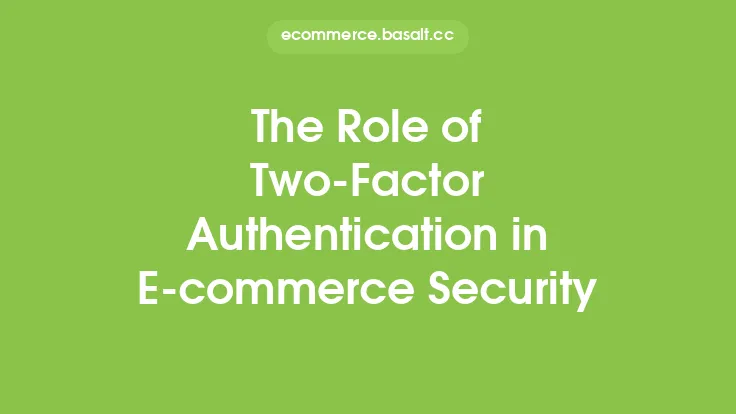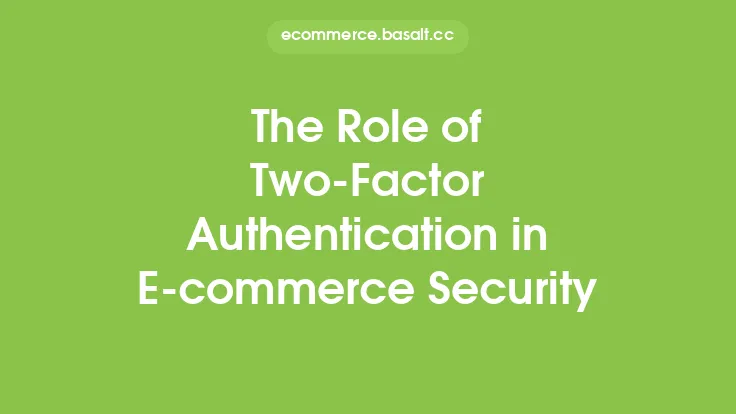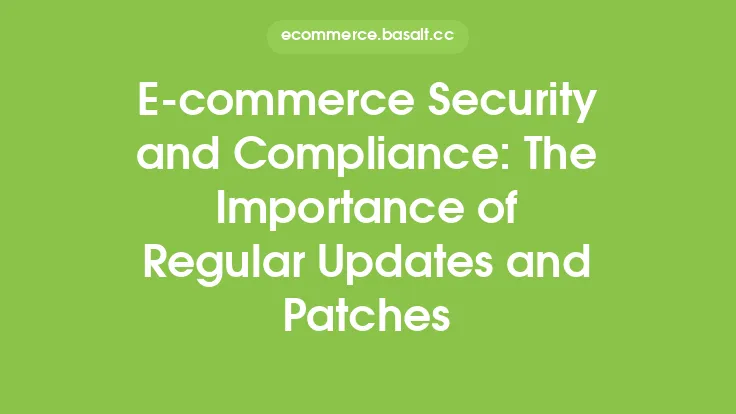In today's digital age, e-commerce has become an integral part of our lives, with millions of people around the world relying on online shopping for their daily needs. However, with the rise of e-commerce, the risk of security breaches has also increased, posing a significant threat to customer trust. When a security breach occurs, it can have severe consequences, including financial loss, damage to reputation, and erosion of customer trust. Therefore, it is essential for e-commerce businesses to prioritize customer trust and take proactive measures to maintain it, even in the face of security breaches.
Understanding the Importance of Customer Trust
Customer trust is the foundation of any successful e-commerce business. When customers trust an online retailer, they are more likely to make purchases, return to the site, and recommend it to others. Trust is built on the customer's perception of the retailer's ability to protect their personal and financial information, as well as their overall shopping experience. A security breach can shatter this trust, leading to a loss of customers and revenue. Therefore, e-commerce businesses must prioritize customer trust and take proactive measures to maintain it.
Communicating with Customers in the Event of a Breach
In the event of a security breach, communication with customers is key. E-commerce businesses must be transparent and honest about what happened, how it happened, and what they are doing to prevent it from happening again. This includes notifying affected customers promptly, providing them with information on how to protect themselves, and offering support and resources to help them recover from the breach. A well-planned communication strategy can help to mitigate the damage and maintain customer trust.
Implementing Proactive Security Measures
To maintain customer trust, e-commerce businesses must implement proactive security measures to prevent security breaches from occurring in the first place. This includes regularly updating software and plugins, using strong passwords and authentication protocols, and monitoring for suspicious activity. Additionally, e-commerce businesses should conduct regular security audits and penetration testing to identify vulnerabilities and address them before they can be exploited. By taking a proactive approach to security, e-commerce businesses can demonstrate their commitment to protecting customer data and maintaining trust.
Building a Culture of Security
Maintaining customer trust requires a culture of security within the organization. This means that security must be a top priority, and all employees must be trained and educated on security best practices. E-commerce businesses should establish clear security policies and procedures, and ensure that all employees understand their role in maintaining security. By building a culture of security, e-commerce businesses can ensure that security is integrated into every aspect of the organization, from development to customer service.
Providing Ongoing Support and Resources
Finally, e-commerce businesses must provide ongoing support and resources to customers to help them feel secure and confident when shopping online. This includes providing information on how to protect themselves from security threats, offering resources and tools to help them recover from a breach, and being available to answer questions and concerns. By providing ongoing support and resources, e-commerce businesses can demonstrate their commitment to customer trust and maintain a positive relationship with their customers.
Conclusion
Maintaining customer trust in the face of e-commerce security breaches requires a proactive and transparent approach. E-commerce businesses must prioritize customer trust, communicate effectively in the event of a breach, implement proactive security measures, build a culture of security, and provide ongoing support and resources to customers. By taking these steps, e-commerce businesses can demonstrate their commitment to protecting customer data and maintaining trust, even in the face of security breaches. Ultimately, maintaining customer trust is essential for building a successful and sustainable e-commerce business, and it requires ongoing effort and dedication to ensure that customers feel secure and confident when shopping online.





